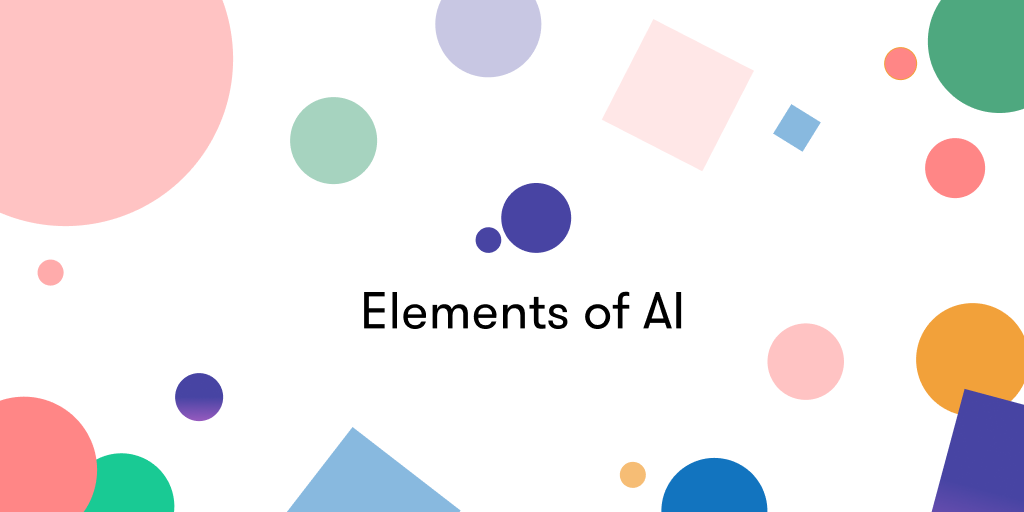Finland’s AI course to contribute to digital skills of Europeans across the continent

Finland has published the online course ‘Elements of AI’ in 21 EU countries in their languages. Latvia was the first country to launch the course in May 2020, and Spain and Slovenia the last ones in April 2021.
During its EU Presidency in December 2019, Finland decided to invest in the future skills of Europeans and to offer the Elements of AI online course to all Member States for free. The objective is to train one per cent of EU citizens in the basics of artificial intelligence, thereby strengthening digital leadership within the EU. The course was designed and organised by the University of Helsinki and Reaktor, a Finnish technology company.
“Digitalisation speeds up the transformation of work and requires new competencies from employees. At the same time, it offers solutions to learning new skills. An online course on the basics of artificial intelligence is a great example of how we can support the lifelong learning of Europeans. There is also a need for this course in the future,” Minister of Employment Tuula Haatainen says.
“It is important for Finland to improve Europe’s digital leadership, and we believe that AI and other new technologies will increase economic growth and competitiveness in the EU. The Elements of AI course is a necessary initiative and its launch is a good starting point for long-term work,” Minister of Economic Affairs Mika Lintilä says.
More than 240,000 people enrolled in the course in the EU
Across the EU, 244,902 people have enrolled in the course, which represents 0.055% of the population. Of those enrolled in the course, 15.9% complete it. About 55% of the participants are men and the rest are women.
“Approximately 2% of Finnish people have completed the course and I encourage all Europeans to explore it. A key idea at our university is that science and learning belong to everybody. This course is one way to invest in the skills of citizens, promote lifelong learning and meet the society's need for information,” says Sari Lindblom, Rector of the University of Helsinki.
Of the new countries, the proportion of the population enrolled in the course is highest in Croatia (more than 21,000 participants, or 0.5% of the population) and in Latvia (around 7,200 participants, or 0.4% of the population). Meanwhile, the number of those enrolled who completed the course is the highest in Luxembourg, the Netherlands and Italy, around 15–19%. Sweden and Estonia hold the top spots in the statistics, because the course has been available there already before Finland’s initiative. Worldwide, more than 660,000 have participated in the course.
“Artificial intelligence is not a robot revolution, but an everyday thing that does not need to be mystified. The course offers a kind of science-based vaccination against all the hype and misleading click headlines on artificial intelligence. Our aim is to involve citizens in thinking about new AI applications so that artificial intelligence can be developed to meet people’s real needs,” says Professor Teemu Roos, who is responsible for teaching the course.
Local partners support the course in EU countries
There is a local academic partner and other partners in each EU country who will make the course known even after the launch. The Finnish missions in the Member States are also involved in this work.
“Exporting Finnish technology expertise to Europe is one of our key objectives, and education is an important part of it. The Elements of AI has been able to reach people extensively regardless of their age, gender or educational background. We hope that the course will encourage people to go online and study other new technologies,” says Managing Director Ville Valtonen from Reaktor Education.
“The project will improve Finland’s reputation as a leading country in education and digitalisation. With the help of Elements of AI, we want to ensure not only our own level of competence but also that of other EU citizens. We offer education and expertise to others too. The project is also of great value in terms of country image,” says Laura Kamras, Director of the Unit for Public Diplomacy at the Ministry for Foreign Affairs.
The course has now been published in the Netherlands, Belgium, Bulgaria, Spain, Ireland, Italy, Austria, Greece, Croatia, Latvia, Lithuania, Luxembourg, Malta, Poland, Portugal, France, Romania, Slovakia, Slovenia, Denmark and the Czech Republic. The course was available in Estonia, Sweden and Germany already before Finland’s initiative during the EU Presidency. The language translations for the course has been provided by the European Commission.
Inquiries:
Mika Niemelä, Director, Ministry of Economic Affairs and Employment, tel. +358 29 506 2135, [email protected]
Nina Alatalo, Adviser to the Minister of Economic Affairs (EU Affairs), Ministry of Economic Affairs and Employment, tel. +358 29 504 7171, [email protected]
Jenni Karjalainen, Special Adviser to the Minister of Employment, Ministry of Economic Affairs and Employment, tel. +358 29 504 7224, [email protected]
Laura Kamras, Director of the Unit for Public Diplomacy, Ministry for Foreign Affairs, tel. +358 29 535 1558, [email protected]
Ville Valtonen, Managing Director, Reaktor Education, tel. +358 50 323 7203, [email protected]
Teemu Roos, Professor, University of Helsinki, tel. +358 44 523 1238, [email protected]
Sari Lindblom, Rector, University of Helsinki, tel. +358 29 412 2210 (secretary), [email protected]
Communiqué: Le cours d’intelligence artificielle finlandais est utilisé à travers toute l’Europe - un gros investissement dans les compétences numériques européennes
Pressmitteilung: Der in Finnland entwickelte Onlinekurs für künstliche Intelligenz findet überall in Europa Anwendung – ein hoher Beitrag zu europäischen digitalen Kompetenzen
Nota informativa: Curso finlandés de inteligencia artificial disponible en toda Europa: un gran esfuerzo por mejorar las habilidades digitales de los europeos